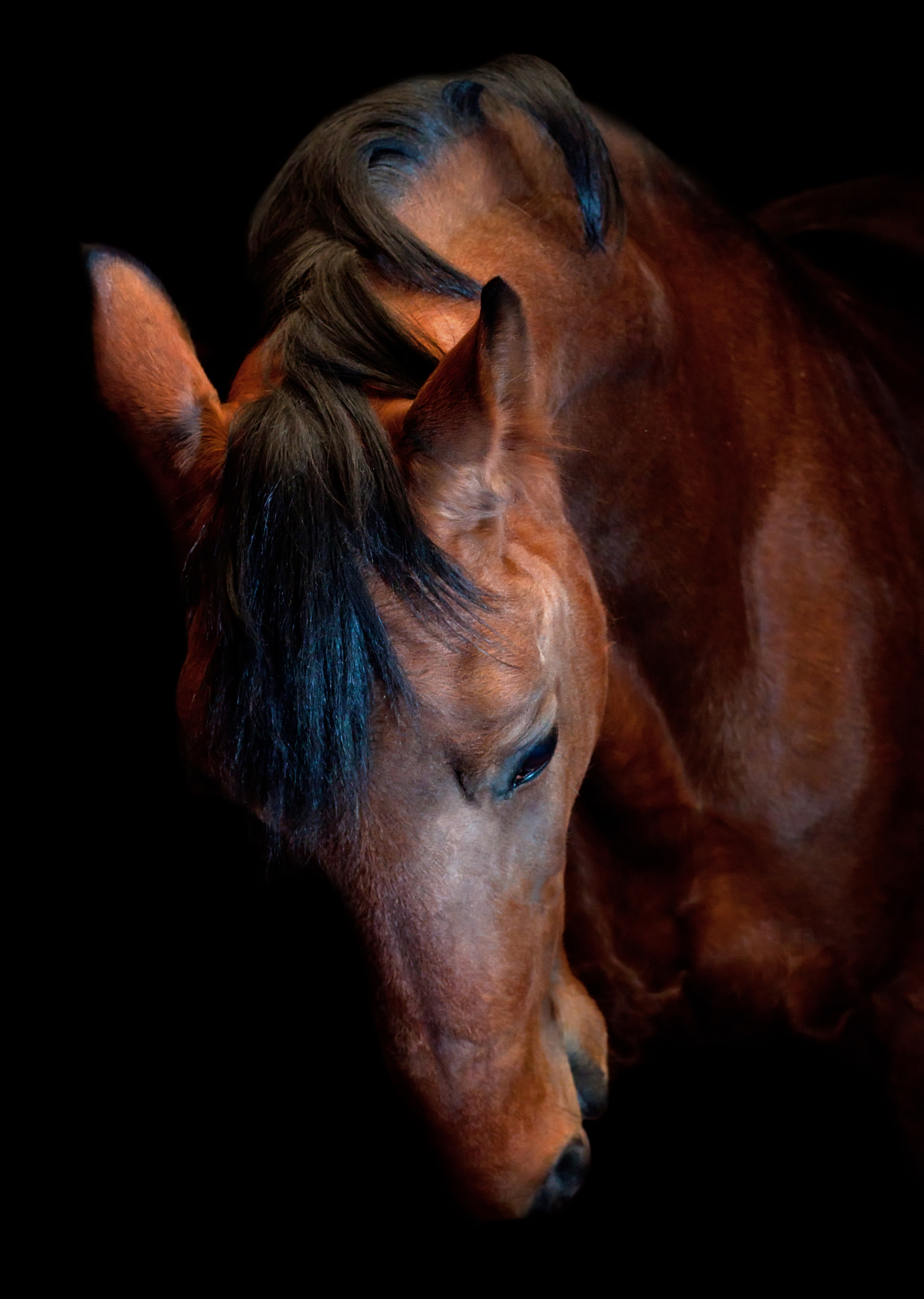Knowledge on horse behaviour rounded up in new report
Scientists from several continents came to Denmark to share their knowledge and experience on stress and learning in horses. The many nuggets of wisdom have been gathered in a report published by DCA - Danish Centre for Food and Agriculture.

As many as 220 equine scientists, veterinarians and professional riders from several continents came to Denmark for the 10th International Equitation Science Conference, which was organised by Aarhus University. The main themes of the conference were equine stress, learning and training.
The research results presented at the conference have been published in a report by DCA - Danish Centre for Food and Agriculture. There were presentations from several scientists from the Department of Animal Science at Aarhus University. Here is a taster of some of their contributions:
Foals learn calmness from their mothers
Fearfulness in foals can be reduced through a combination of maternal transmission and individual learning in early life. Reducing fearfulness is important for both the welfare of the horse and for rider safety.
The study included both mares and foals. Before foaling, the mares were habituated to five different fear-provoking situations. Following birth the foals in one of the experimental groups were given the opportunity once a week for the first seven weeks of their life to observe the calm reaction of their mothers to the five situations.
The foals that were able to watch their mothers cope with the fear-provoking stimuli had a significantly lower heart rate and significantly lower reactivity to the various tests at both eight weeks and five months of age compared with foals that had not observed their mothers handle this type of situation. The foals also showed a more explorative behaviour.
- The results suggest that it is possible for foals to habituate to fear-provoking situations via the mare and that they extend this reaction to incorporate new objects, says scientist Janne Winther Christensen.
A familiar face reduces fearfulness
Since fearfulness in horses affects both the horse and their caretakers, it may be appropriate to include an objective assessment of horse temperament in breeding programmes. The question is whether handling of the horse can be allowed during these assessments since there may be large differences in how used to handling the horse is which may affect the result of the assessment.
A study by Anna Feldberg Marsbøll showed that the training of a horse in basic handling routines can reduce its behavioural response in the fear tests when it is handled by its usual trainer.
- Handling of the horse in frightening situations by a person who knows the horse can increase safety, because although the horse is frightened it reacts less violently. However, in situations where the temperament of a horse is to be objectively assessed in connection with breeding evaluations, the horse should not be handled by a person it knows, concludes Anna Feldberg Marsbøll.
Weaning stress of foals can be measured in their dung
When a foal drops dung on the ground, it also drops documentation for how stressed it is. A study by Senior Researcher Jens Malmkvist showed that measurement of hormone metabolites in the dung of 6 to 8-month-old foals can be used to assess their weaning stress.
The hormone cortisol is secreted in the blood when the horse expects or is exposed to stressors. It has been documented that stress in adult horses can be measured by assaying for cortisol metabolites in their dung. Now there is evidence that this approach can also be used on foals.
In the study the foals were abruptly weaned when they were six to eight months old. The stressors consisted of the foals being removed from their mothers, i.e. they no longer received milk and they were transported to and housed in a foreign environment.
This type of weaning resulted in a stress reaction measured as a significant increase in the concentration of cortisol metabolites in the manure. On day 10 following weaning, the hormone concentration had returned to the level it was before weaning.
- Non-invasive methods for assessing stress responses are valuable since they do not affect the animal's stress level. In combination with behavioural responses they may be used for several purposes such as comparing the effects of different types of management and training of horses, says Senior Researcher Jens Malmkvist.
The International Equitation Science Conference was held under the auspices of the International Society for Equitation Science (ISES) and attracted 221 equine scientists, veterinarians, professional riders and others with an interest in what is happening in horse research from 21 countries, including Australia, USA, Canada, Japan and several European countries.
The conference was the 10th of its kind and is held in a different country every year.
Read the report of the Conference "Conference proceedings - 10th International Equitation Science Conference", DCA report no. 44, June 2014.
For further information please contact: Researcher Janne Winther Christensen, Department of Animal Science, email: JanneWinther.Christensen@anis.au.dk, telephone: +45 8715 8075
